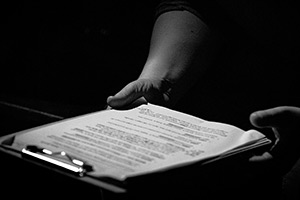All about the BBC Comedy Collective
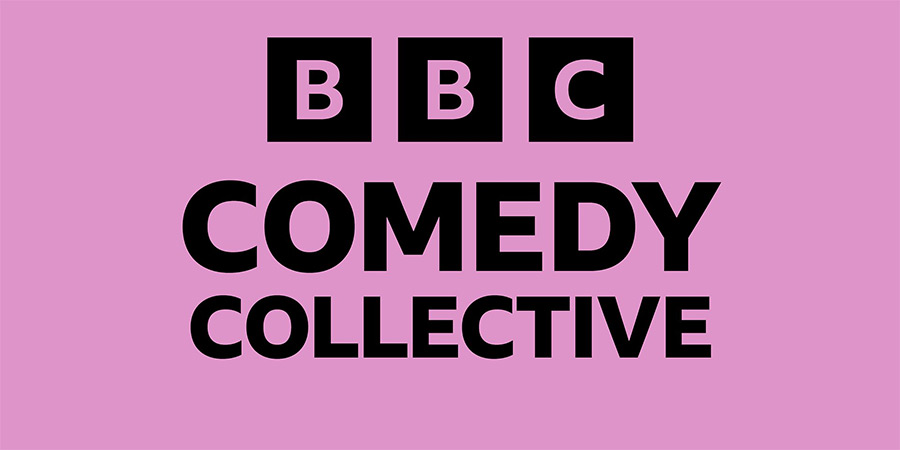
The BBC Comedy Collective bursary is open for applications until 5pm on Monday 30th January. We talk exclusively to BBC Comedy's Emma Lawson (Commissioning Editor) and Emma Barnard (Assistant Commissioning Editor) about the scheme.
Tell us more about the Comedy Collective. What is it? Why has it been launched?
The Comedy Collective is a new bursary scheme from BBC Comedy combining the existing writing bursaries and adding new producer and director bursaries. Putting them all under one banner will give people the opportunity of having an instant network, rather than being off working in their writer silos, which has been the case up until this point. We have had writer bursaries for the last five years; whether that's in the names of Felix Dexter, Caroline Aherne or Galton & Simpson, but we haven't had director or producer schemes in recent times. This is a way of building on the good work of the existing writers bursaries and by adding on producer and director bursaries at the same time and putting everybody through the same process so that we are doing and making it a bigger, better offering.
Can you tell us more about the producer and director element?
We think it is a great time in television. There are lots of opportunities being offered by other broadcasters and other streamers so we wanted to make sure that the scheme that we were launching gave something different, and we felt that there weren't enough director/producer bursaries out there. We want to find ways to connect with the best or most up-and-coming emerging producers from all across the UK. We want to be building relationships early and felt it was important that the people leading on those bursaries had excellent and exceptional track records in their space to be inspiring.
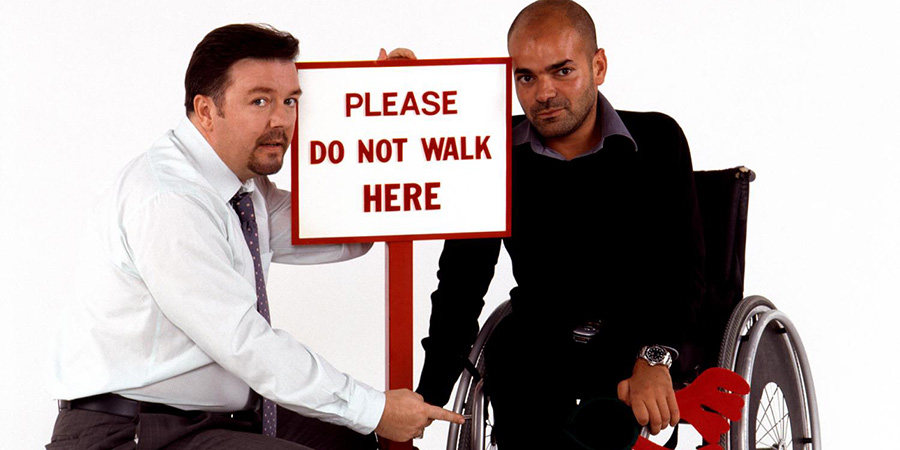
Ash Atalla came forward to offer his expertise as a producer to the bursary. He is a non-white, disabled producer who has made literally hours and hours and hours of critically acclaimed and award winning BBC comedies, including Gervais and Merchant's The Office, and has crossed over into international comedy as well. He has just got a lot of miles on the clock, he has got a lot of experience and is an inspiring person for hopefully the next generation of producers to look up to.
We've also got sitcom director Christine Gernon, who came through a BBC directors scheme many years ago herself, and she has directed hours and hours of BBC comedy specifically. All of the best British sitcoms, from One Foot In The Grave to Gavin & Stacey. She then crossed over to LA and she was working on shows like Speechless and New Girl. She has worked on both ends of the spectrum in terms of lower budget/more traditional comedy but also the big, larger scale international comedies as well. So in terms of directing - and as a female director as well - she is the best in the business and a really inspiring person to lead.
You mentioned the Felix Dexter, Caroline Aherne and Galton & Simpson bursaries. They were separate bursaries before. Do they still operate independently under the collective or umbrella or does everybody work together? How exactly does it separate itself out?
They exist as individuals, in the sense that we still are very much championing the work of the people each is named after - Caroline, Felix and Galton & Simpson - but we are not pinning those individual bursaries to people anymore. We still having the existing bursary people at the front and centre of the scheme, but we are not giving individual people those named bursaries anymore.
This move has been based on some of the research we had done on all these bursaries before this one, when we started and were figuring out how to best run the scheme. We did a survey of everyone who had gone through and analysed what worked well and maybe what could be a little bit better. And the thing about writers is that it is quite a lonely venture generally. So, you don't really get to interact with different areas of production. By opening it out to producers and directors, it means that people are finding creative collaborators in more of a cohort as opposed to one bursary at a time. And also, whilst we want to be prioritising non-white writers, we also want to be looking across the board at non-white producers, non-white directors. And similarly with other underrepresented groups and communities. This is a way of us making sure that we are not just looking for one particular person. We are hoping this is a way for us to help showcase amazing, diverse, creative leadership that has gone before now and will encourage people to apply for the scheme.
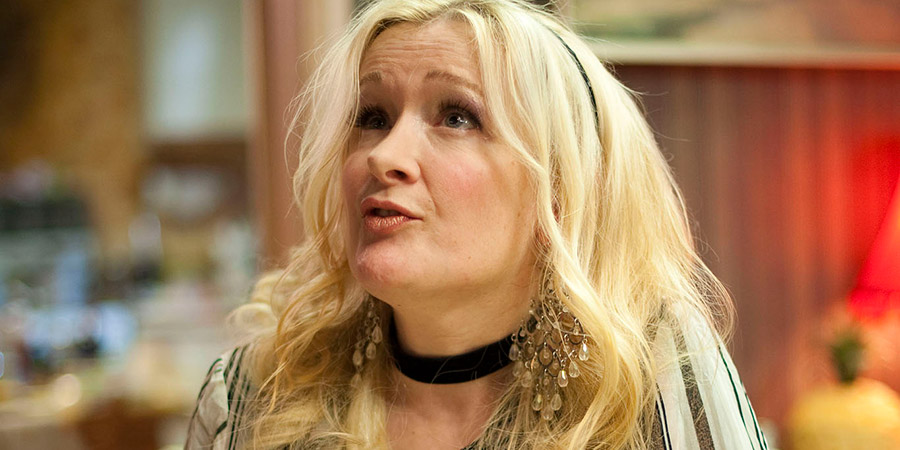
Are there a certain number of producer slots? Is a producer one of the ten you are looking for, for example? Or will you wait to see the entries before deciding how things are divided up depending on the skillsets that you are presented with?
Ideally we would have three producers, three writers and three directors and then one wildcard. Of course we have never done this before, so we don't know that will be the outcome' we won't be quite sure until all the applications have been assessed. We have one ring fenced place in Wales, one in Scotland, one in Northern Ireland and one in Newcastle, the 2022 BBC City Of Comedy, so we will make sure we have a spread of recipients from across the regions. This is not to say we cannot have more than one from each region. But as it's our first year we will have to see how submissions go before we can say definitely three in each discipline.
The balance will be nice. It will either go one way or another. There hasn't been a director/producer scheme before. People are used to applying for writers bursaries so therefore we may get a lot of writers.
Interestingly, in the beginning we had more director's submissions than the others. But I think now the writers have taken over.
So whatever you end up with in 2023, might not necessarily be where we will end up for the 2024 scheme?
This is kind of our pilot year. We will see what happens with submissions this year. We are going to be really open about the fact that it is new.
So what you are doing now is having the opportunity to build a template for the future? Therefore you'll go where the talent is?
Yeah exactly. And also we are taking all of the great work of the existing bursaries and we have moved that forward in this sort of supercharged scheme, so it will be whatever we learn in this: so that next year we might be able to improve again as we move on. But the hope is always that we create a space for brilliant emerging talent who want to come work with us and make sure that we have got those access points so that people can come to us from all kinds of creative backgrounds.
The people that make the cut, what are they going to get in terms of support? What will those from each of the three disciplines get?
One of the big things we wanted to make sure is that we offered a uniformed scheme. Whether you are a writer, director or producer you get exactly the same opportunity in terms of finance and support. The point of this bursary is to make sure we give people a 360 degree overview of the scripted comedy landscape. So if you are one of the three, you get twenty days of paid shadowing on a BBC comedy worth up to £10,000.
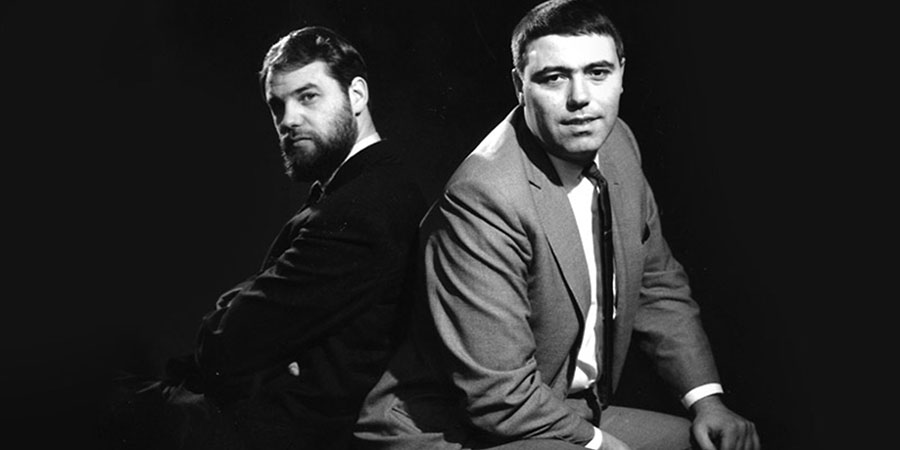
Those 20 days can vary. Say for example if you are a writer and you have not spent any time on set, you may want to prioritise your days on that part of the process. If you are a director, who hasn't really spent a lot of time in the pre-production side of things then they might want to focus on spending time in that pre-production, development stage to get the most out of learning. But we believe, whatever your creative discipline is, understanding the production process is always going to be valued and always able to inform how other people fit into the process and the work that each stage entails.
Writers will understand, once they have sat and edited, what is literally, physically put together. And similarly on the floor, they will be able to get to see the sort of decision making around how directors are working with the cast. It just gives it much more of a clearer overview so everyone will get those twenty days. It is just up to them in consultation with us on where they would like to prioritise. And at the end of the twenty days, they each get a £5,000 grant. The £5,000 goes towards giving them the time to create some sort of material. A tangible material that they can use to further themselves in the next stage of working.
So if you are a director, you can put that five grand towards a short film, editing a better reel. If you are a writer it might just pay for your time to be able to develop a spec script a bit further or even pay for some courses. And if you are a producer you can use it to host a networking event, you could do a talent night or start a short film event. But again we can work in consultation.
What it isn't, is a commission. This isn't about them getting BBC commissions at the immediate end of this. This is about us trying to create creative ways of developing their skills and developing their relationships not only with the BBC, but with the comedy production community generally, so that they can be part of it. And hopefully end up working with us for years to come.
The delegates will also be invited to up to three events in the year and they will get their expenses covered. One of them will be the BBC Comedy festival in Cardiff. Representatives for Felix Dexter, Galton & Simpson and Caroline Aherne - as well as Ash and Christine - will be attending as well. Showcasing and raising their profiles in the industry and having them at the festival means that the bursary winners get to network with their industry peers. And what we said about the existing bursary alumni, it is very important for us to bring them into the Collective in the whole spirit of collaboration and collective creativity. We wanted to make sure that anyone who had done one of these to date feels part of the scheme moving forward. Experience is very valuable in the work they have gone on to do.
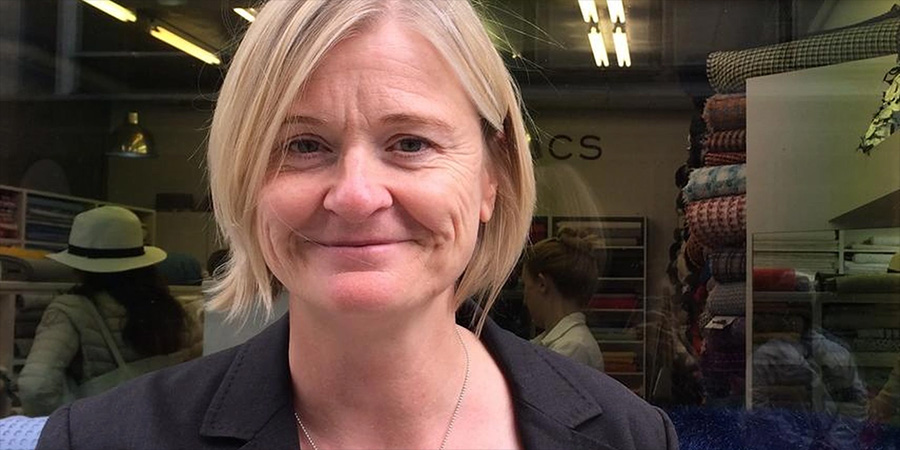
You will be working with other partners to deliver the mentoring opportunities, such as North East Screen. A lot of work is involved to organise that. How long has this plan been in the works?
A year really, from January 2022. That's when we started looking at changing the bursary scheme. Jon Petrie was the new Director of BBC Comedy and the majority of the team he brought in were new to the BBC. It felt like, with everything we were doing, it was an opportunity to really interrogate and scrutinise everything and ask 'are we doing everything as well as we can?'. Again, sort of remaining competitive. So how can we make sure that we are making things bigger and better?
It was an opportunity that was presented where we could re-evaluate everything because we were a new team. It's a years' worth of working very closely with a lot of stakeholders, with a lot of different people around the BBC who have sort of shared their masses of experience with bursaries and schemes like this. And then we can add in all of our own experiences because we have all taken part in schemes like this ourselves at one point or another, whether it's a simple training course or a 'one to watch' initiative. We have put our own experience and how we felt about those things into it as well. So we have gathered a lot of information and hopefully we have formed the super bursary but let's see.

Similarly the work I (Emma Lawson) do with the North East Comedy Hot House and what Emma Barnard does with Comedy 50:50, these are all schemes that have promoted inclusivity and connecting people together. So, I think most people who work at the BBC have that in them somewhere anyway. You know, it's a public service mentality. We are all very aware of audiences and making sure that everybody is reflected back at themselves.
As this is the first time BBC Comedy has done this, would you like to predict how many applications you will get?
I don't think we can, because the bursaries that have gone before were all separate so they got very different amounts of applicants. Because we have added director and producer talent disciplines to this, we don't know how much that's going to add or take away from the applications. We could give you ballpark figures but looking back to some of the individual writers ones, they vary from a couple of hundred to a couple of thousand.
Who gets the job of looking through the applications and choosing?
We have a crack team of industry professionals. It is run by a very experienced development producer who has worked closely with the Writersroom like this before. It's a big team of industry professionals ranging from ex-channel heads to screen agency people to producers to writers to directors. All, again, representing that cross-section from the UK that we are looking to reflect in our delegates. We have a four stages if you include the final interviews.
Are entries being judged individually or will you be imaging how people might work together in a group of ten as a collective?
Entries are being judged individually. The dream is that this might allow the space for people to meet their future career of collaborators, but that's not for us to judge. It is not part of the criteria. And truthfully, only they are going to know who they click with and they share a tonal sensibility with or something, you know? All we can do is create the space for those relationships to grow. But the dream would be that a writer, producer and director combo comes out of this and the three of them go off to do great things. And you know, they might want to combine their £5,000 development grants together to make a super-group short film. There's lots of great things that could come out of putting brilliant people in a room together and the same time.
It's not an entry level scheme and trying to find the mid-level talent that are in the right place and time to be able to capitalise on this opportunity is quite difficult. That mid-level space is always quite a difficult one to navigate. So, that's another thing that will hopefully make us a little different is that we expect you to have credits, which doesn't have to be television, just something that demonstrates their commitment to their craft. So if you are director, it might be that you have directed some theatre but want to cross over to television but haven't had the opportunity to do that; you still have a credit as a director somewhere else.
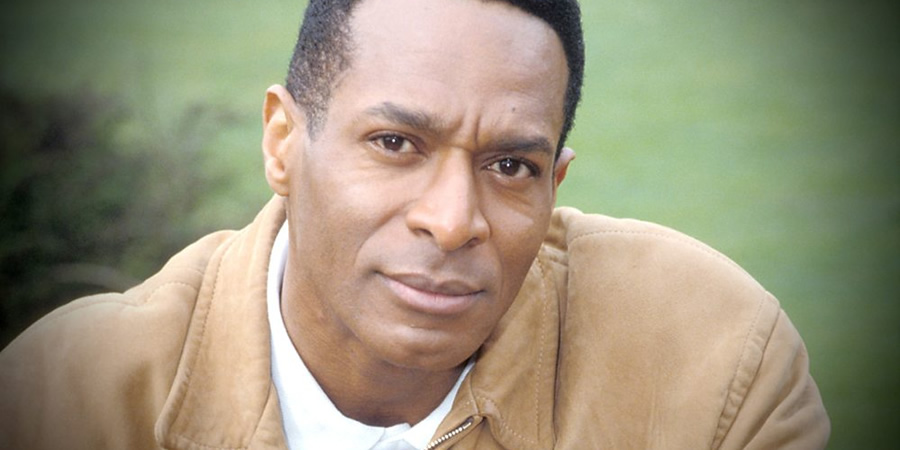
Similarly as a writer, you might not have worked in long-form scripted comedy but perhaps you have written for stage or for podcasts. You have to have a credit somewhere in that writing space. The second part of the criteria, which again is a difficult one, is that commitment to comedy. That's marrying up two things from each person: that they are at the right stage, with their one credit, a minimum of one credit, and in parallel they can demonstrate commitment to comedy.
It doesn't have to be a directing credit in comedy, it can be for whatever. Or theatre, a podcast, stand up, short film. We are looking for professional credits, it doesn't have to be just from TV, film or radio.
It just has to be a minimum of one credit in their chosen discipline. But they must be passionate about comedy as well. They can either visually articulate that in the work they have done or verbally articulate it in the way that it has impacted them and whether or not that's how they spend their personal time. Or that they exclusively watch comedy. That that's their escapism. Whatever it is, they just need to be able to demonstrate that to us.
Would you accept a joint application?
Yes, we would accept writing, producer and director pairs but it must comprise of no more than two people. It has to be singular discipline. It may be that we uncover the very first comedy producer duo if there hasn't been one before!
Any tips for those thinking of applying?
I know this is a really boring tip, but make sure you read what you are submitting because you can't change your submission once you have put it in. Once it's in, we can't undo it. We cannot edit your submission, so make sure you have triple checked! It can't be reversed, basically. And make sure you read all of the material that is on the website about what you can or can't submit.
We do not want people to feel discouraged if they don't meet the criteria this year. Hopefully this will give them the opportunity to go away in this next year and get that credit or get a bit more involved in the comedy community or the comedy scene in their areas and find a way to bolster those things so that it means that they are stronger candidates for the 2024 scheme.
Any final tips you would like to share?
Show your commitment to comedy. I think that's quite a big one. Because we are having to judge this on the page, use that personal statement opportunity as a way of letting the readers know who you are, to really sell yourself and why you feel this is the right opportunity for you. Why you are at the right stage of your career to be able to really make the most out of this.
We are looking to develop people not projects. It is not exclusively about the materials submitted. It isn't about us developing a project. It's 100% about people development and not material development at this stage.
This article is provided for free as part of BCG Pro.
Subscribe now for exclusive features, insight, learning materials, opportunities and other services for comedy creators.



